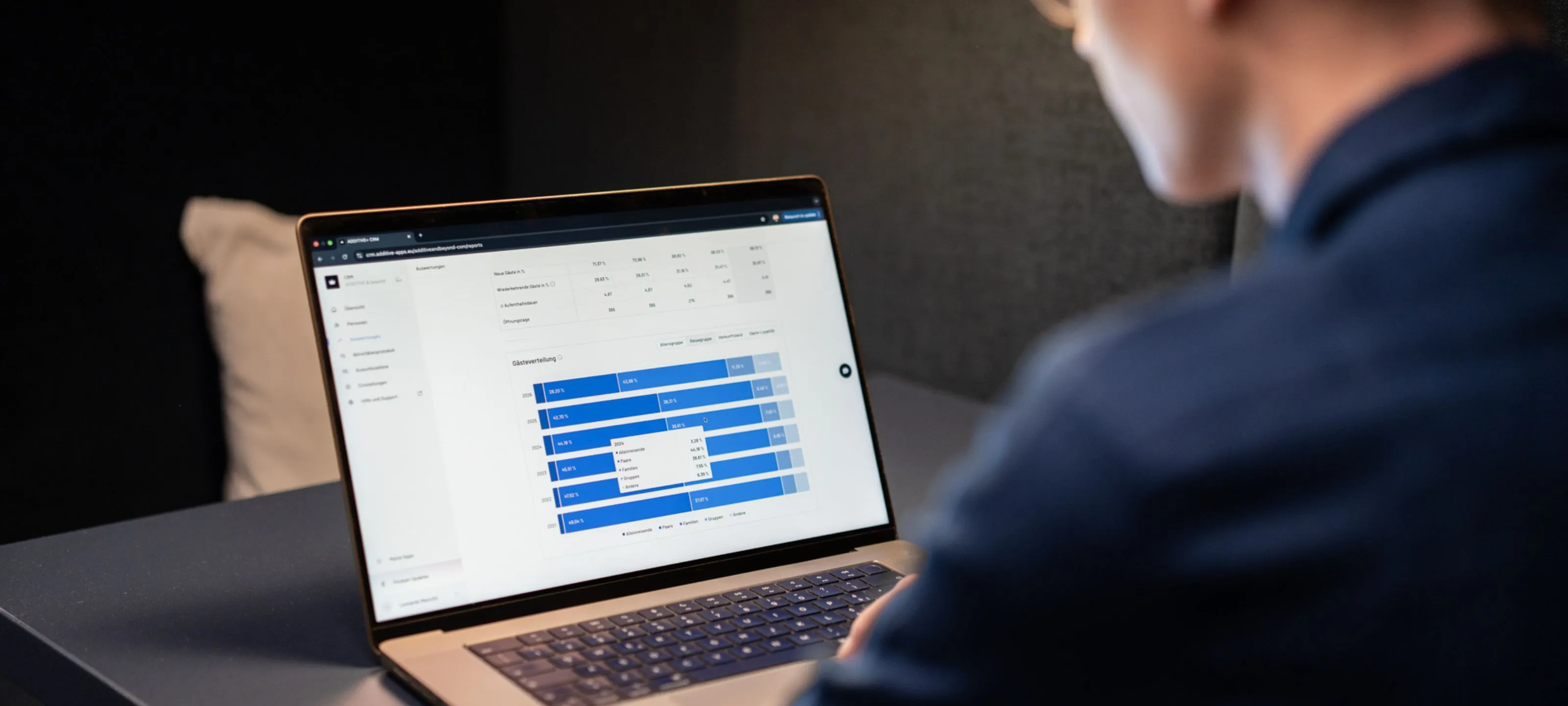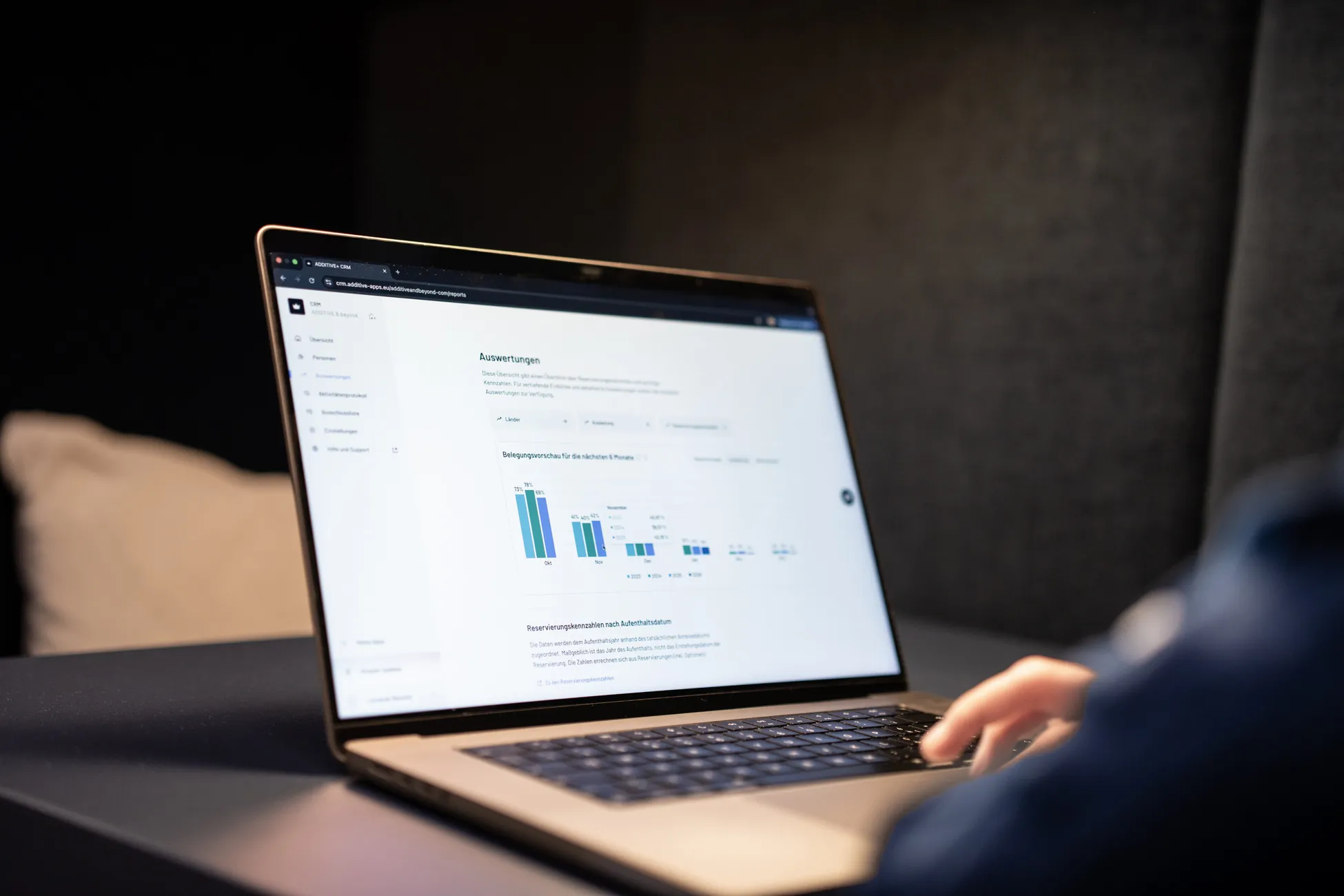
More bookings for hoteliers through performance marketing

Performance Marketing bietet Hoteliers die Möglichkeit, ihre Werbemaßnahmen genau zu messen und direkt auf Reservierungen auszurichten. Erfahren Sie, wie diese Methode Ihren Umsatz steigern kann.
Performance marketing helps hoteliers increase bookings through targeted and measurable efforts. The methods are particularly effective in the hotel industry because they can be easily tracked and optimized for success. By using performance marketing, hoteliers can see a direct impact on their inquiries and reservations.
What is performance marketing?
Performance marketing is a type of online marketing that focuses on achieving specific, measurable goals. This means that the hotel sets a specific goal in advance, and uses marketing efforts to achieve it.
Clear target conclusions (conversions) in performance marketing in the hotel industry are inquiries, bookings, voucher purchases or newsletter registrations. By using performance marketing, hotels can not only increase customer loyalty, but also maintain or grow their market share as a hotel chain.
Why is performance marketing important for hotels?
Through online marketing, hotels can easily and specifically reach new potential guests, using data from previous bookings and reservations. The collected data is relevant for the analysis, evaluation of the corresponding reservations and subsequent optimization of campaigns. Performance marketing allows hotels to track and evaluate inquiries and bookings using key performance indicators (KPIs).
By analyzing search behavior and the value of their campaigns, hotels can optimize their efforts to increase reservations. Performance marketing offers flexible ad options and only charges for successful events, like increased click-through rates or additional hotel reservations. The focus is on the actions of potential guests, rather than just the reach of the hotel. There are metrics to measure in performance marketing, including the following:
COST PER CLICK (CPC)
In this model, the hotel incurs costs every time a user clicks on one of their ads.
COST PER LEAD (CPL)
In online marketing, a lead is usually described as the provision of a user's contact details. When a user provides their contact details, the hotel pays a corresponding cost for these leads
COST PER ACTION (CPA)
The hotel pays for a desired action, such as downloading a brochure or clicking on a link to the hotel's website or landing page.
COST PER SALE (CPS)
If an ad leads to a direct online reservation or payment for a service at the hotel, the hotel pays a cost per sale
What counts as performance marketing in the hotel industry?
Performance marketing offers hotels a range of opportunities on various platforms. For instance, search engine placements can increase awareness and trust among potential guests, while social media ads can target younger audiences on platforms like TikTok. Diversifying marketing channels is important for a hotel's long-term success and competitiveness. Some examples of platforms in performance marketing include the following:
- SEARCH ENGINE ADVERTISING (SEA)
By placing ads on search engines like Google or Bing, hotels can increase their search position in a targeted and predictable way. These placements improve the hotel's visibility and reach for certain keywords, and key metrics include the click-through rate (CTR) and cost per click (CPC).
- SEARCH ENGINE OPTIMIZATION (SEO)
Like search engine advertising, search engine optimization helps hotels improve their position on Google and be found more easily by potential guests for specific search queries.
- SOCIAL MEDIA ADVERTISING (SMA)
Advertising on social media platforms like Instagram, Facebook, and TikTok is an effective way for hotels to reach younger audiences and promote their offerings. Social media hotels can build a community of guests, and gain both organic and paid reach and awareness.
Newsletter Marketing
There are various motivations for hotels to use newsletter marketing. It's important for hotels to be clear about their goals beforehand, which can include improving guest loyalty and upselling existing reservations. Newsletters can also be used to inform regular guests about current packages, offers, and vouchers.
Systematic Revenue Growth:
How the Stroblhof Resort measures marketing success in reservations

- The results of the marketing campaign at Stroblhof Resort
- 7 success factors for data-driven hotel marketing
- Specific tips on how to systematically generate revenue
- Make guest communication effective and predictable






.jpg)


.webp)


